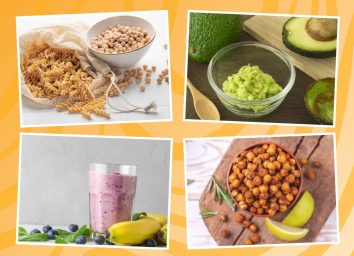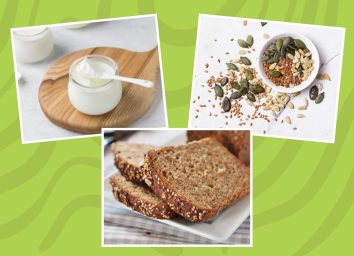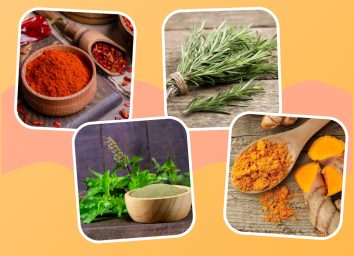20 Foods That Relieve Your Gut Problems, Say Dietitians
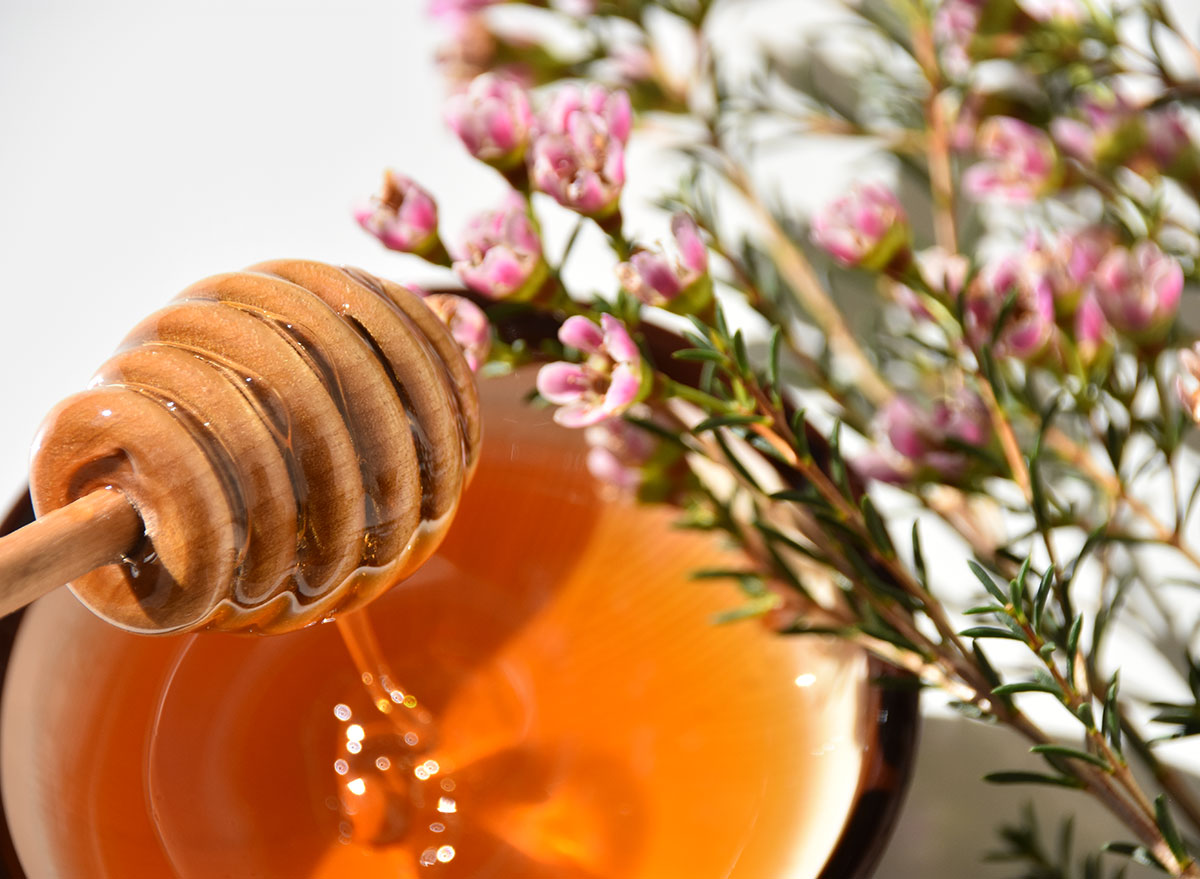
Gut problems — like bloating, IBS, ulcerative colitis, constipation, and other gastrointestinal issues — can really put a damper on your day, not to mention your overall health. The good news is that certain foods are better than others at relieving these ailments.
"Diet and specific nutrients play a supportive role in limiting gut symptom exacerbations," says Danielle Gaffen, MS, RDN.
Gut flora or gut microbiota are the microorganisms including bacteria, archaea, and fungi that live in the digestive tracts of humans and other animals. Gaffen notes that this area of the body has been the focus of increased research over the years as it's been linked to several gut and health issues.
"Researchers have learned that the microbiome is made up of more than 10 trillion bacteria living in our guts, of both the 'good' and 'bad' bacteria varieties. What appears really important for health is the ratio of how many 'good' to 'bad' bacteria exist in our guts," she adds, noting that disturbances in this balance can undoubtedly contribute to or exacerbate gut problems, increase the risk of autoimmune diseases, and cause other health conditions.
Diet plays an influential role in modulating this ratio of "good" and "bad" bacteria.
With that in mind, she tells her clients to eat things that have been proven to keep this ratio balanced, such as probiotic foods (like yogurt) and supplements. Other bacteria-balancing-foods include fermented foods, fatty fish, and more. And then there are foods that can help alleviate chronic medical conditions such as colitis, Crohn's disease, and IBS.
We talked to Gaffen, as well as several other registered dietitians and medical professionals to get their thoughts on foods that can relieve gut problems. Read on for their thoughts, and for more on healthy eating, don't miss 7 Healthiest Foods to Eat Right Now.
Papaya
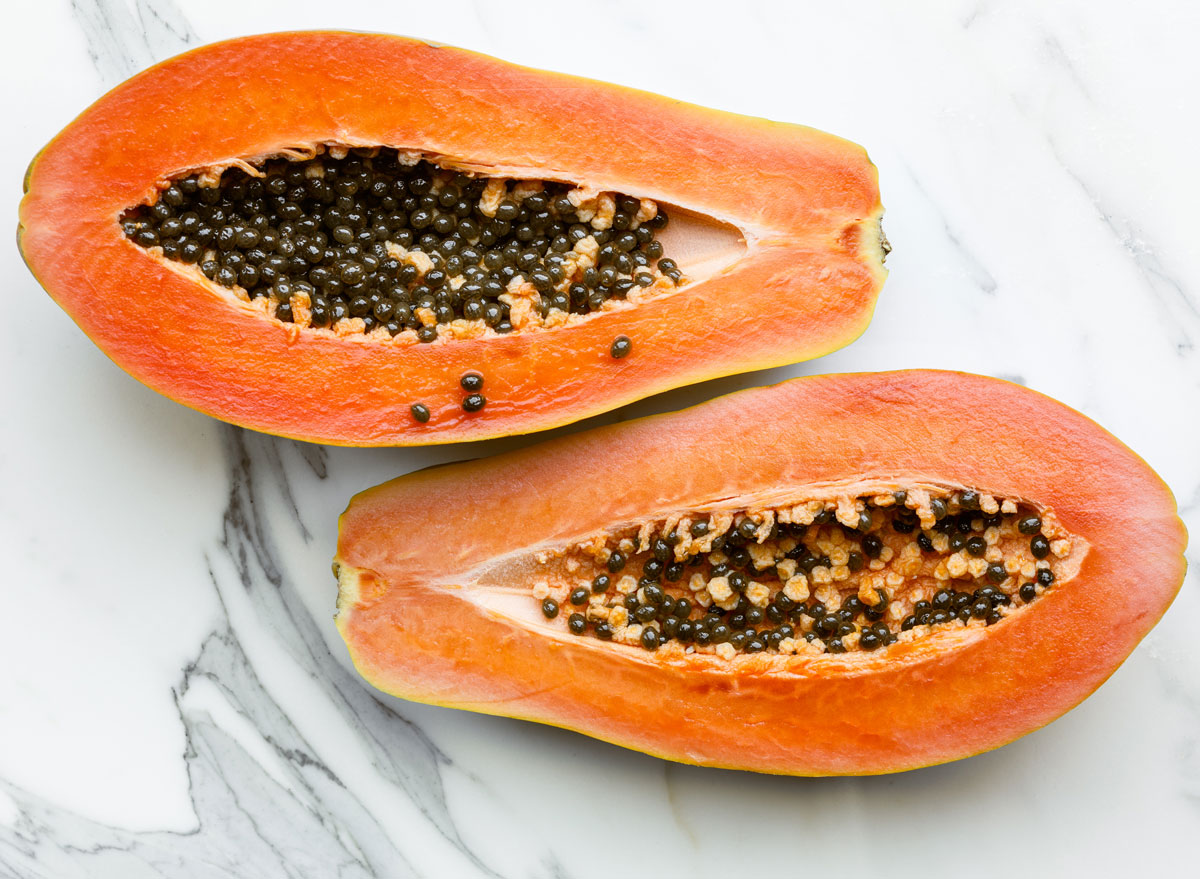
"Papaya contains papain, which is a strong digestive enzyme that contributes to the healthy digestion of proteins," explains Shannon Henry, RD, a registered dietitian working with EZCare Medical Clinic. "It may also relieve IBS symptoms."
Citrus Peel
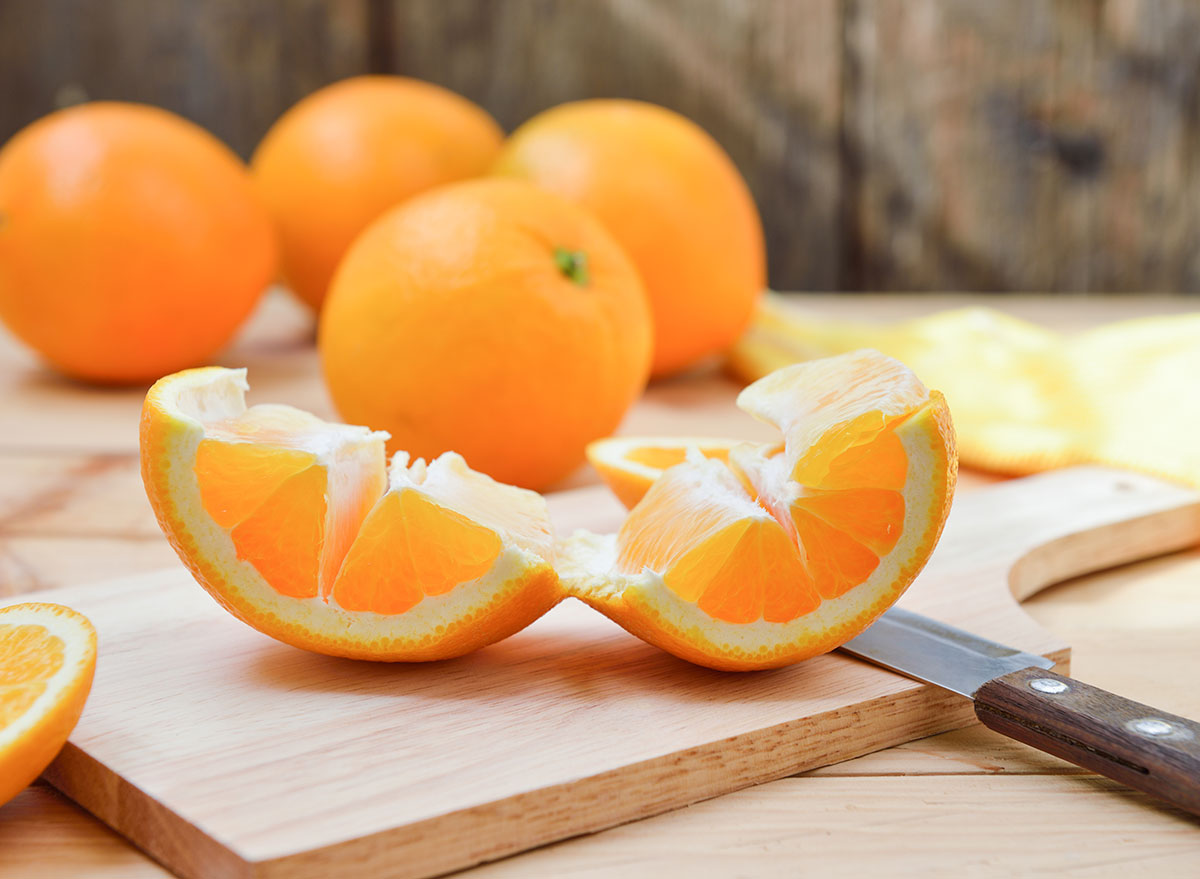
"Citrus peel, as a bitter food, can upregulate digestion, support healthy bile flow, and support essential detoxification in the liver," explains Caitlin Self, MS, CNS, LDN. "Additionally, lemons, limes, and oranges have d-limonene (most concentrated in orange peels), which supports peristalsis (the movement of the muscles in the upper GI tract), and can be helpful for heartburn, bloating, and symptoms of GERD." (Related: 18 Foods Making Your Heartburn Worse)
Ginger
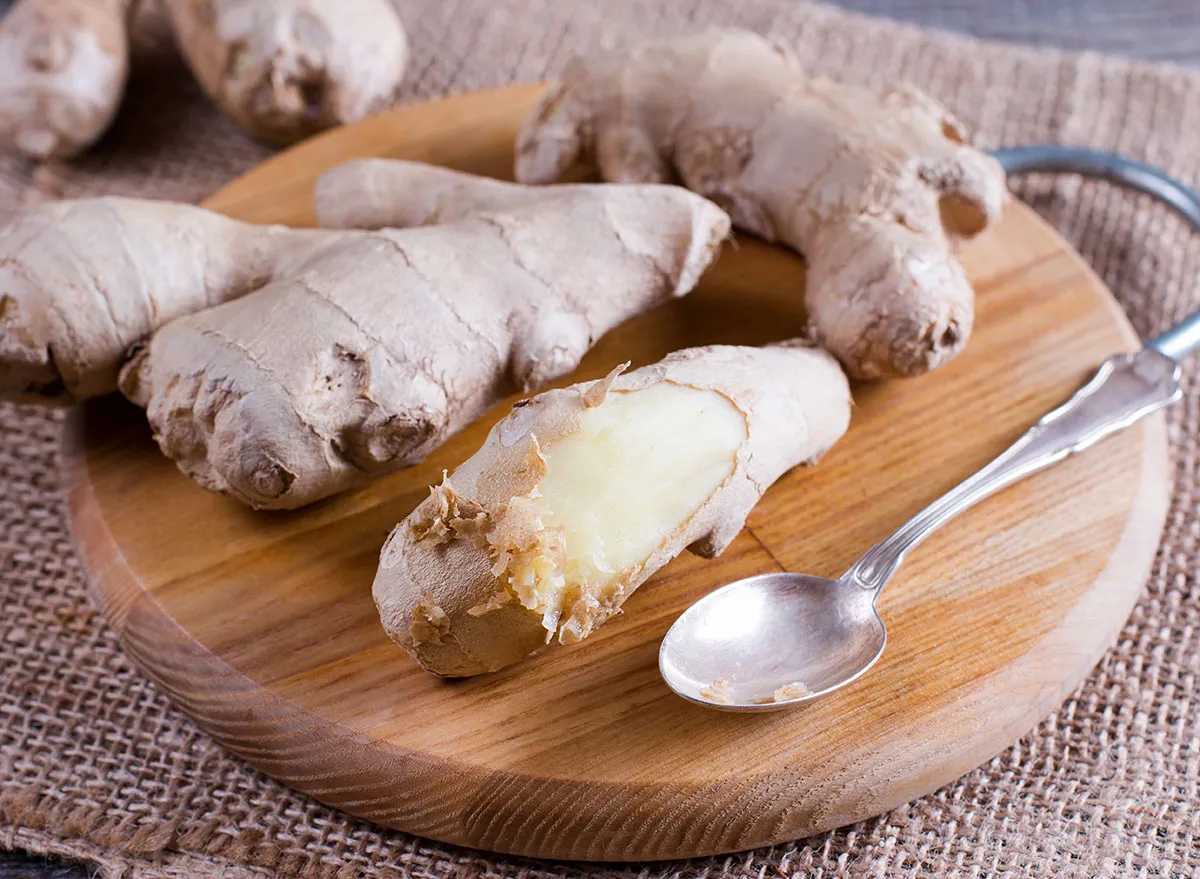
"Ginger is part of the carminatives family. Carminatives are herbs that help soothe the digestive tract and relieve gas," says Allison Gregg, RDN, LDN, and a nutritional consultant at Mom Loves Best. "Ginger calms intestinal activity, expels gas from the digestive tract, and thins the blood to improve circulation, which all help relieve bloating." The spice also helps relieve nausea, which is why doctors often suggest sipping some ginger ale or ginger tea if you feel queasy.
Apples
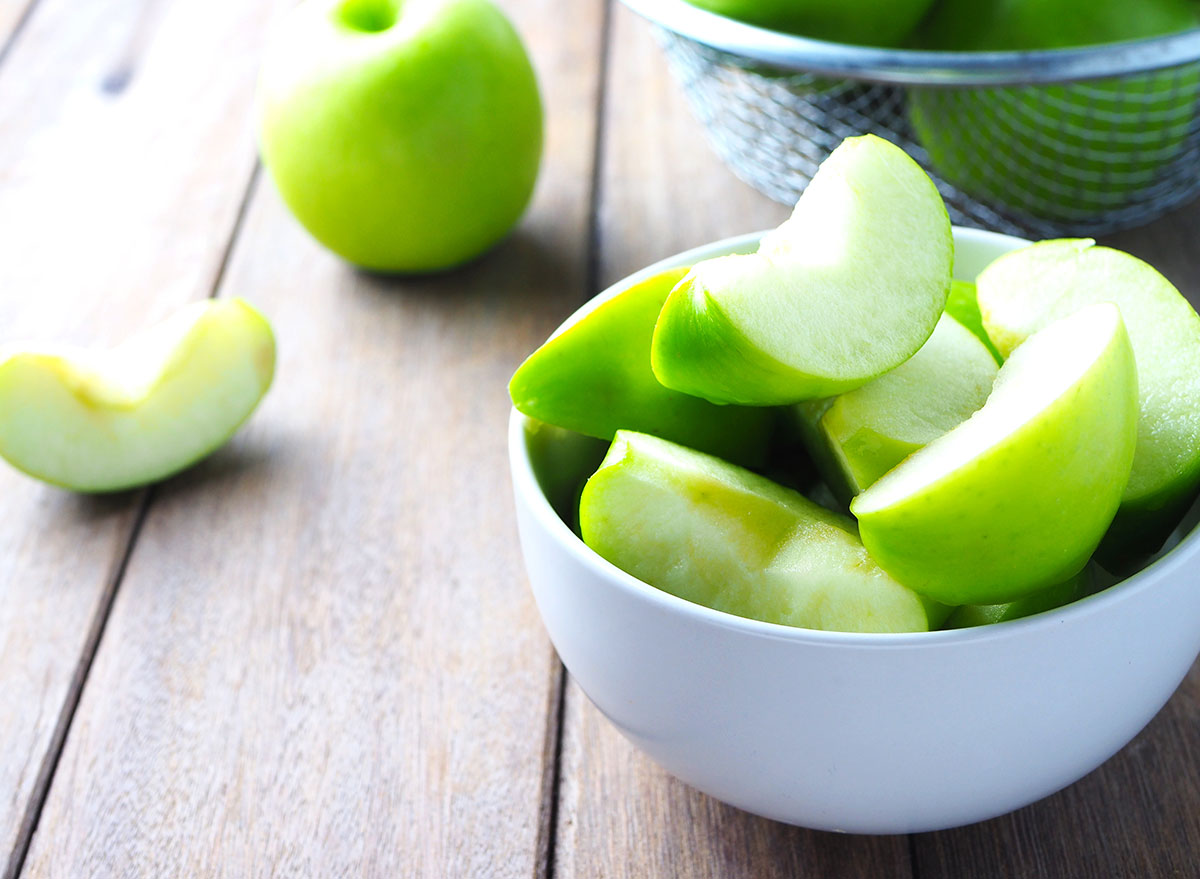
"Apples are high in pectin, a type of fiber that can neutralize some acidity in the stomach," notes Leann Poston MD, who is affiliated with Invigor Medical. "Increased fiber in the diet makes the stool softer and easier to pass. Apples are also high in vitamin C and potassium."
Oats
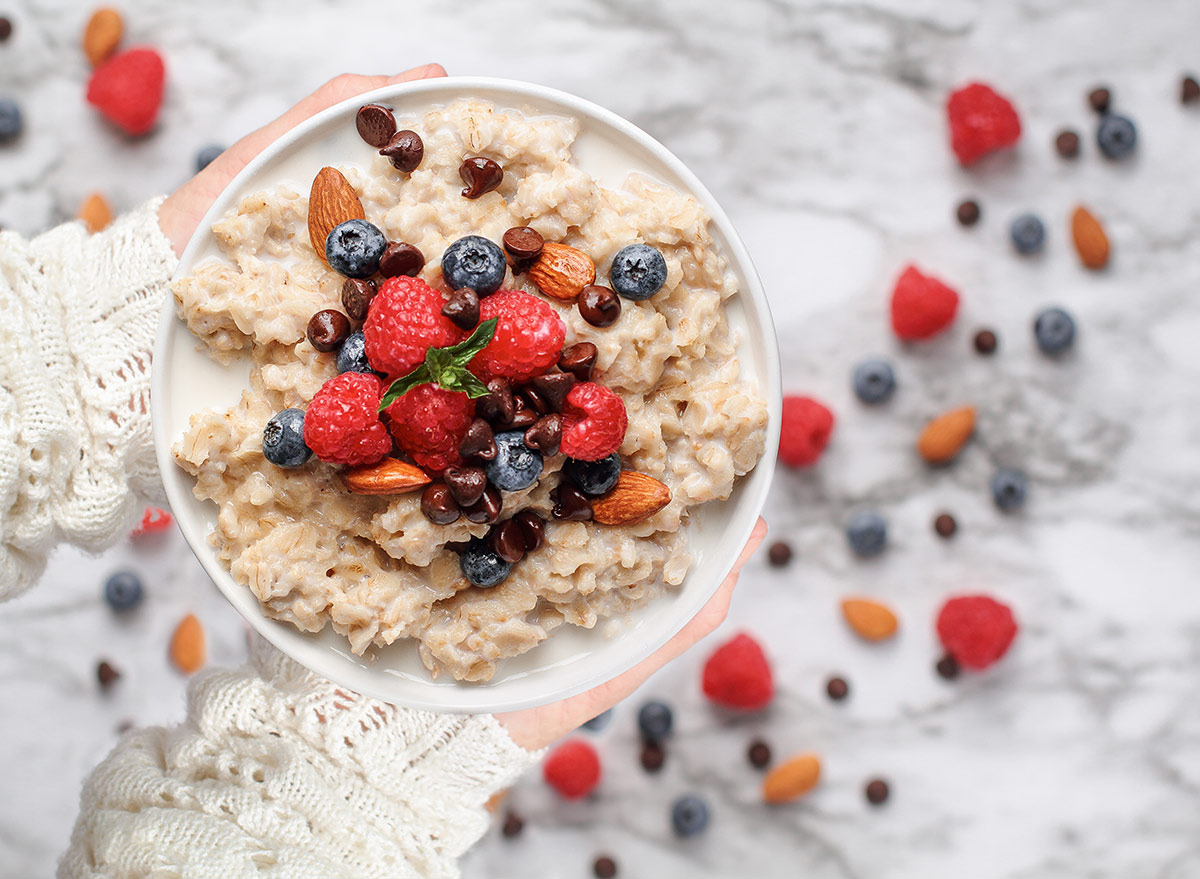
"Eating minimally processed oats with no added sugar, such as Flahavan's Quick Cook Steel Cut Oats, is a great source of vitamins and minerals, and most importantly, dietary fiber. Beta-glucan, a main dietary fiber found in oats, is a prebiotic, and studies have shown that diets rich in foods containing prebiotics such as oats tend to increase the beneficial bacteria in the gut," notes Matthew Kadey MSc, RD. "And according to the Harvard School of Public Health, the benefits of eating oats for digestion also have to do with their phenolic compounds and phytoestrogens, which serve as antioxidants, that help to reduce the damaging effects of inflammation." For more, see 7 Amazing Benefits of Eating Oatmeal.
Spinach
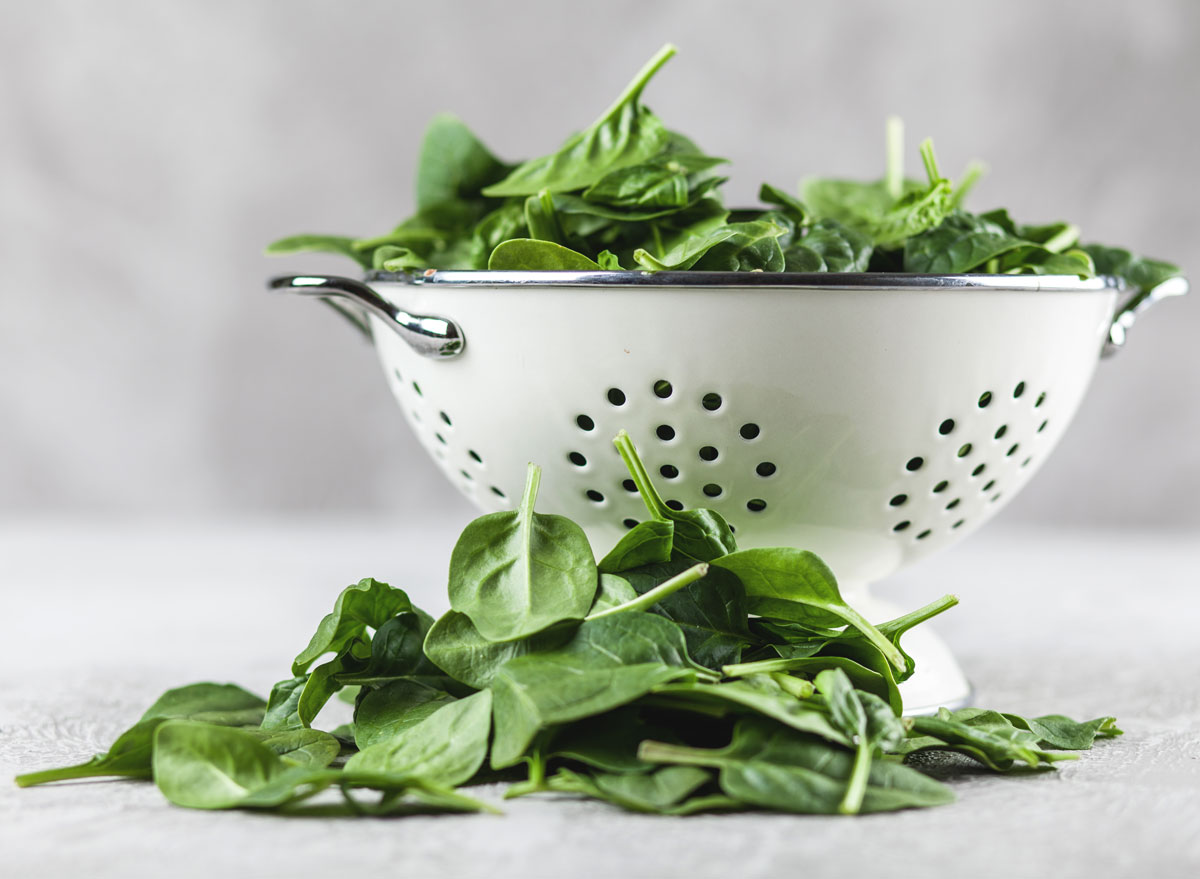
"Spinach and other green leafy vegetables are rich sources of magnesium, a mineral that draws water into the intestines, helping to soften the stool and relieve constipation," says Matt Olesiak, MD, Chief Medical Director of SANESolution, a metabolic healing company. "Recent research also found that spinach contains significant amounts of sugar sulfoquinovose (SQ), an enzyme that fuels the growth of good gut bacteria and limits the growth of bad bacteria in the gut, an indication it may help rebalance the gut microbiome so essential to gastrointestinal health."
Sauerkraut (and Other Fermented Foods)

"Fermented foods, such as sauerkraut, benefit gut health by contributing beneficial bacteria (probiotics) to the microbiome, the ecosystem of microbes that populates the body. A healthy microbiome is essential for good gut health, as well as immune health, mental health, and much more, so adding in probiotics from foods like sauerkraut can help keep your gut and whole body healthy," notes Laura Poe Mathes, RD. "A spoonful of sauerkraut on your next sandwich, salad, or eaten right out of the jar, is an easy way to get more probiotics into your diet." Other fermented foods that will get the job done include kimchi, miso, and kefir.
Colostrum-LD
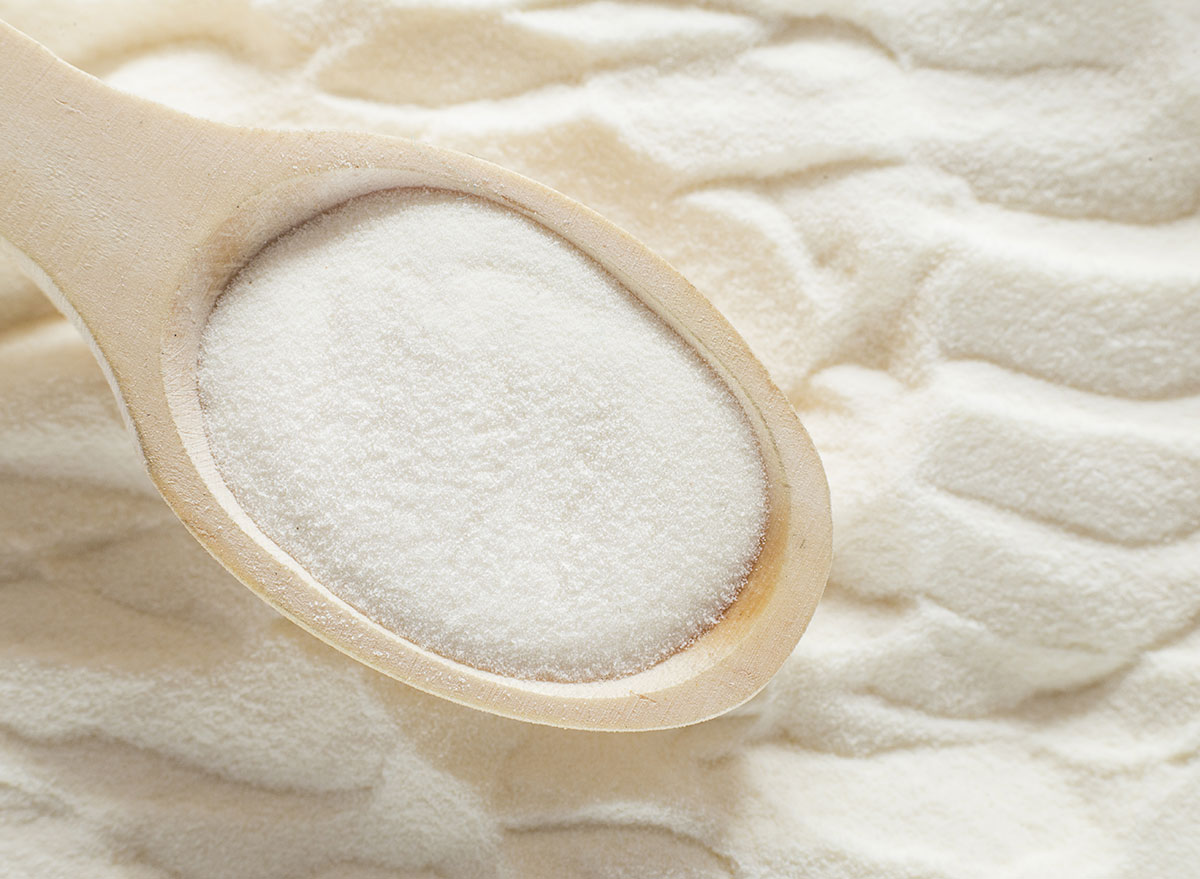
"Known as nature's first food and as a foundational food, Colostrum-LD can be very helpful for inflammatory bowel diseases like Crohn's and ulcerative colitis," says Alicia Galvin, RD, and resident dietitian at Sovereign Laboratories. "First, it has growth factors in it that help to heal the mucosal lining of the intestines that can be damaged from the inflammation. Secondly, it contains proline-rich polypeptides or PRPs that help to balance the immune system, which gets out of balance in autoimmune conditions." If you're interested in giving Colostrum-LD a try, mix some into a glass of water or a shake.
Salmon
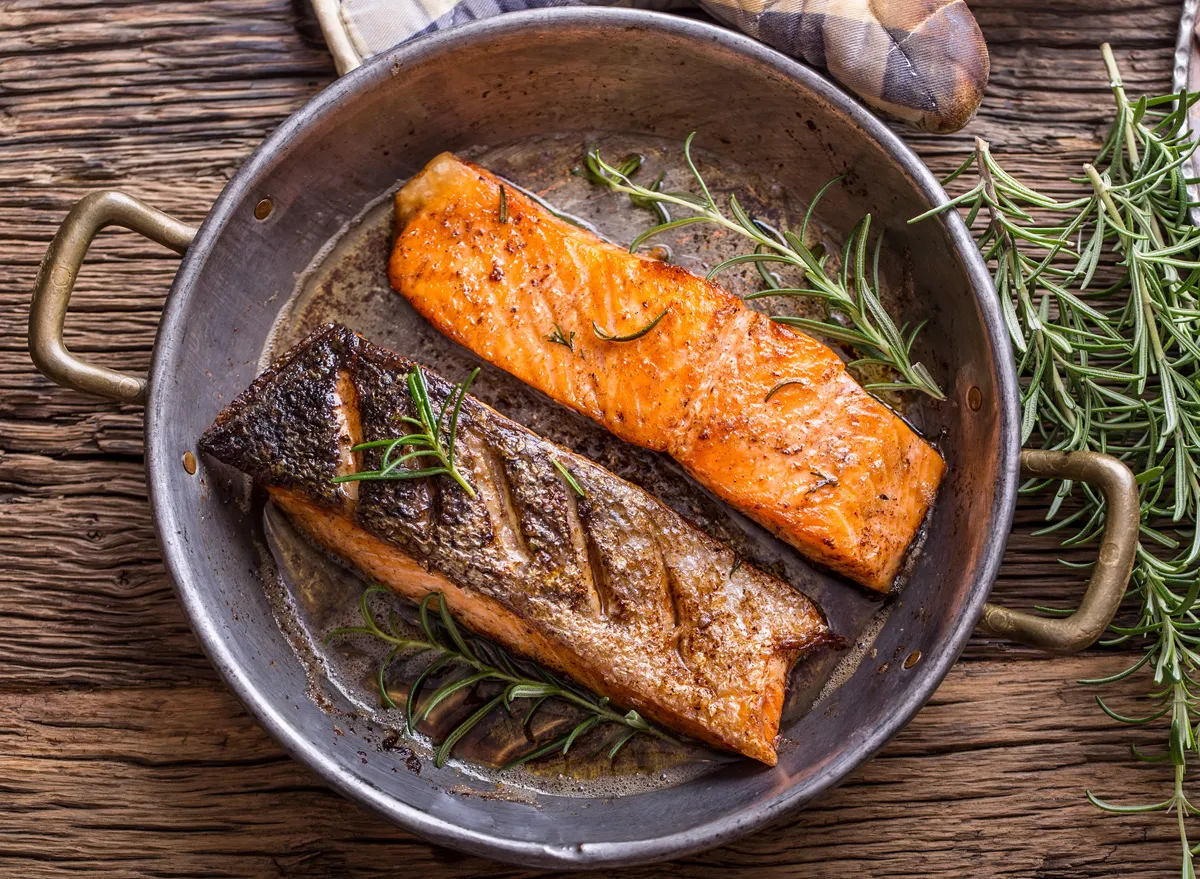
Another one of Gaffen's suggestions for her clients with gut issues is eating foods rich in omega-3 fatty acids, like salmon and other fatty fish. "Interestingly, the consumption of omega-3 fatty acids or supplements appears to result in a significant medication-sparing effect, with reduction of inflammatory bowel disease (IBD) activity and increased time in remission," she says, adding that she advises clients to try to consume fatty fish at least twice a week.
"Food sources of omega-3s include fatty fish, such as salmon, mackerel, herring, sardines, anchovies, and oysters." She also points out that some other foods on this list, like chia seeds, flaxseed, and leafy green vegetables, are great sources of omega-3 fatty acids as well. Canola oil, hemp oil, pumpkin seeds, sunflower seeds, soybeans, and walnuts also made the cut, though Gaffen did include a caveat: "Note that absorption of omega-3s is not as good from plant sources as animal sources," she adds.
Yogurt
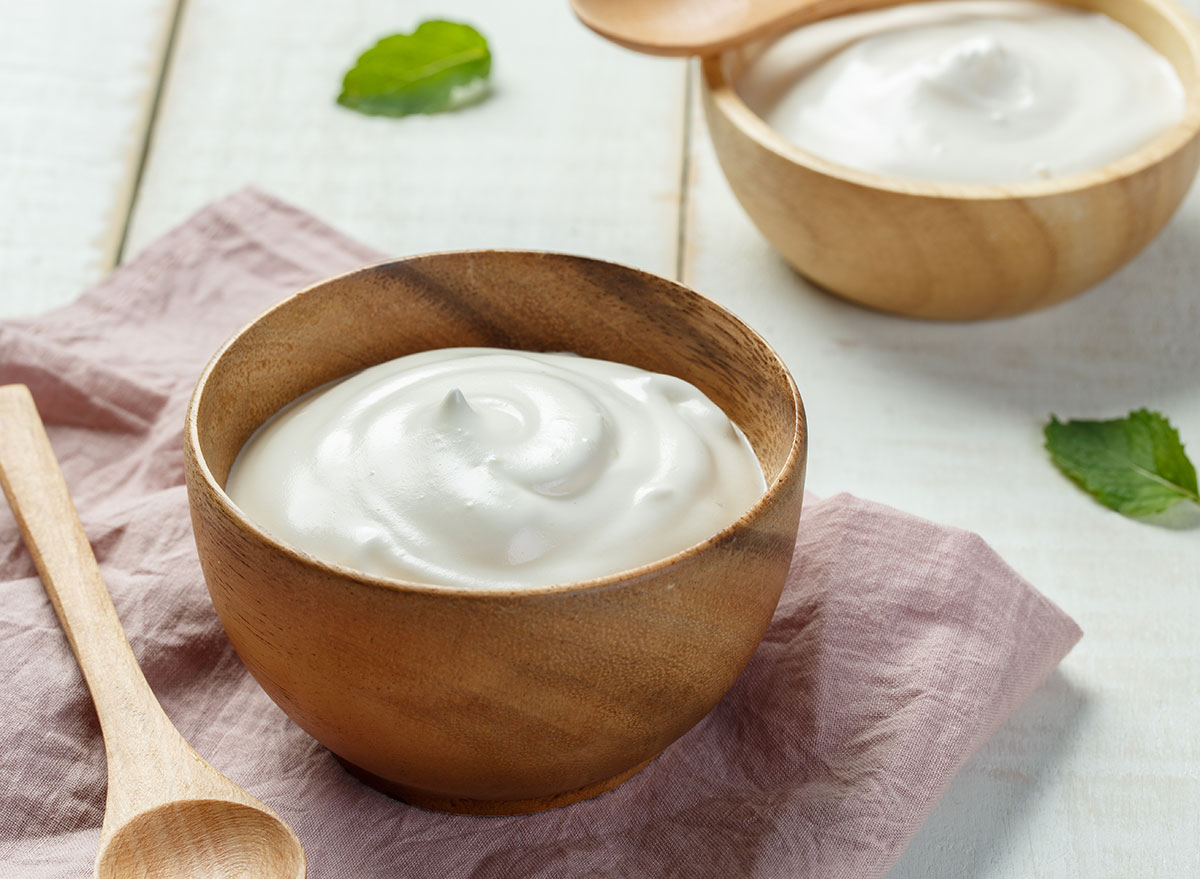
"Yogurt contains probiotics which are good bacteria that live in the digestive tract. Probiotics can help with bloating, constipation and diarrhea. In order to get the benefits, yogurt should contain live and active cultures," Poston notes. "Yogurt can help with lactose intolerance, constipation, diarrhea, inflammatory bowel disease, and allergies." For some options, check out these 25 Best Yogurts for Weight Loss, According to Nutritionists.
Manuka Honey
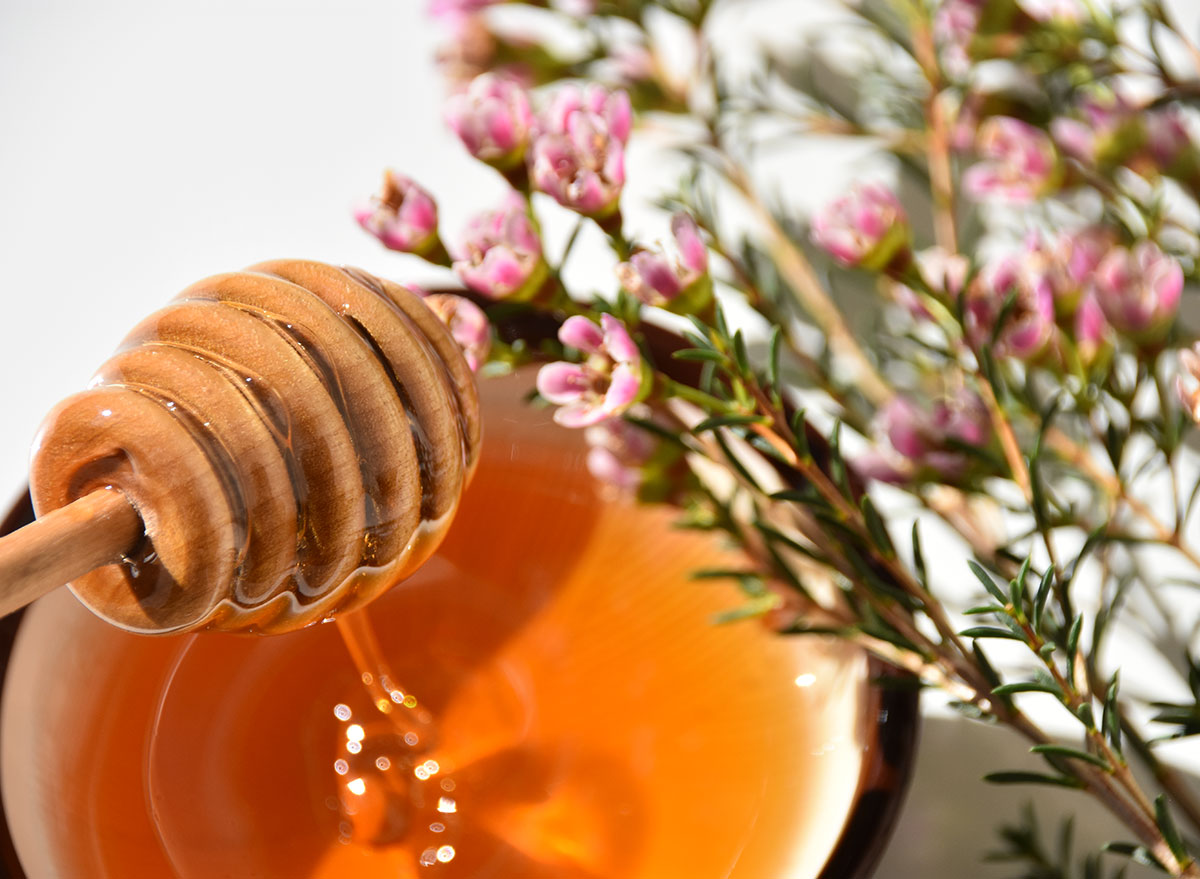
"Bloating can be caused by so many different things and can often be difficult to pinpoint exactly what is the cause. However, some potential causes are inflammation in the gut, which could be caused by GI issues, indigestion, inflammation in the gut, overeating, too much salt, too many carbohydrates, weight gain, or menstruation. Some solutions to these issues are decreasing salt intake, consuming the recommended amount of carbs, weight loss, decreasing overeating, or consuming manuka honey," explains Sany Younan Brikho, MDS, RDN, who works with TheDishOnNutrition. "Studies have shown that honey contains types of prebiotic called fructooligosaccharides, which helps the growth of probiotics in the gut that helps improve overall gut health. PRI's Manuka Honey is one of my favorites because they have different forms of the product that make it easy to incorporate into our daily diet."
Fennel Tea
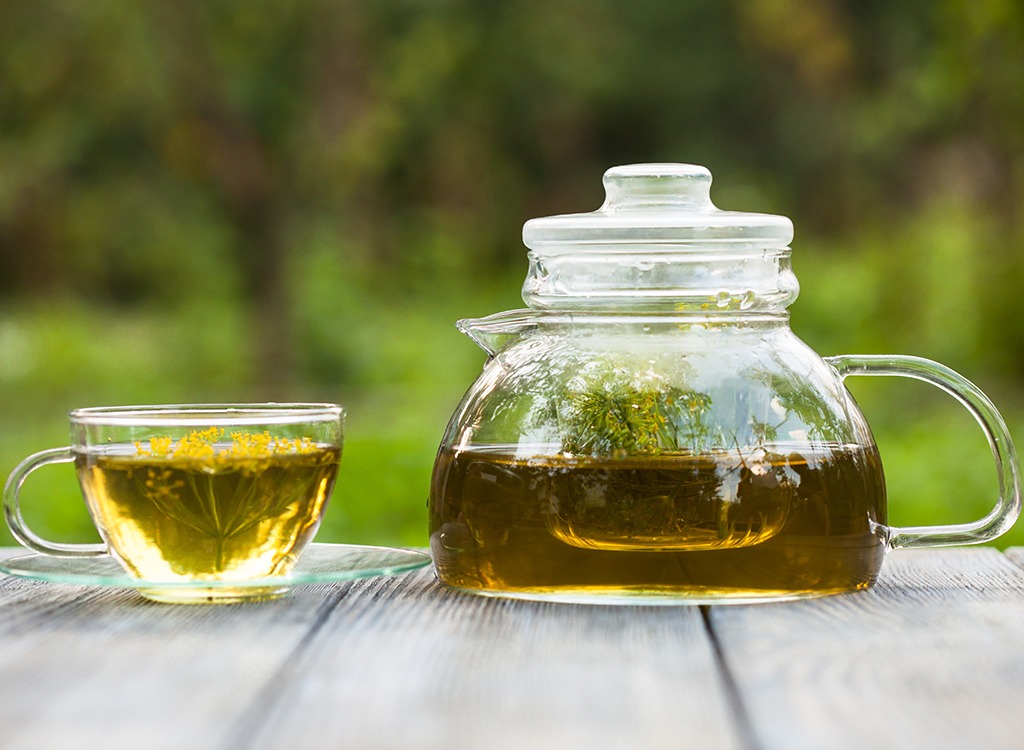
According to Susan Bowerman, MS, RD, and the senior director, worldwide, of nutrition education and training at Herbalife Nutrition, fennel tea can help ease and prevent gas and bloating. "Instead of carbonated beverages (and that includes sparkling and mineral waters that can dump a lot of air into your digestive tract), try having warm fennel tea, made by steeping fresh fennel seeds in hot water," she advises. "You won't be getting all the gas, and fennel helps prevent gas formation." Fennel as a food can have a similar effect.
Cottage Cheese
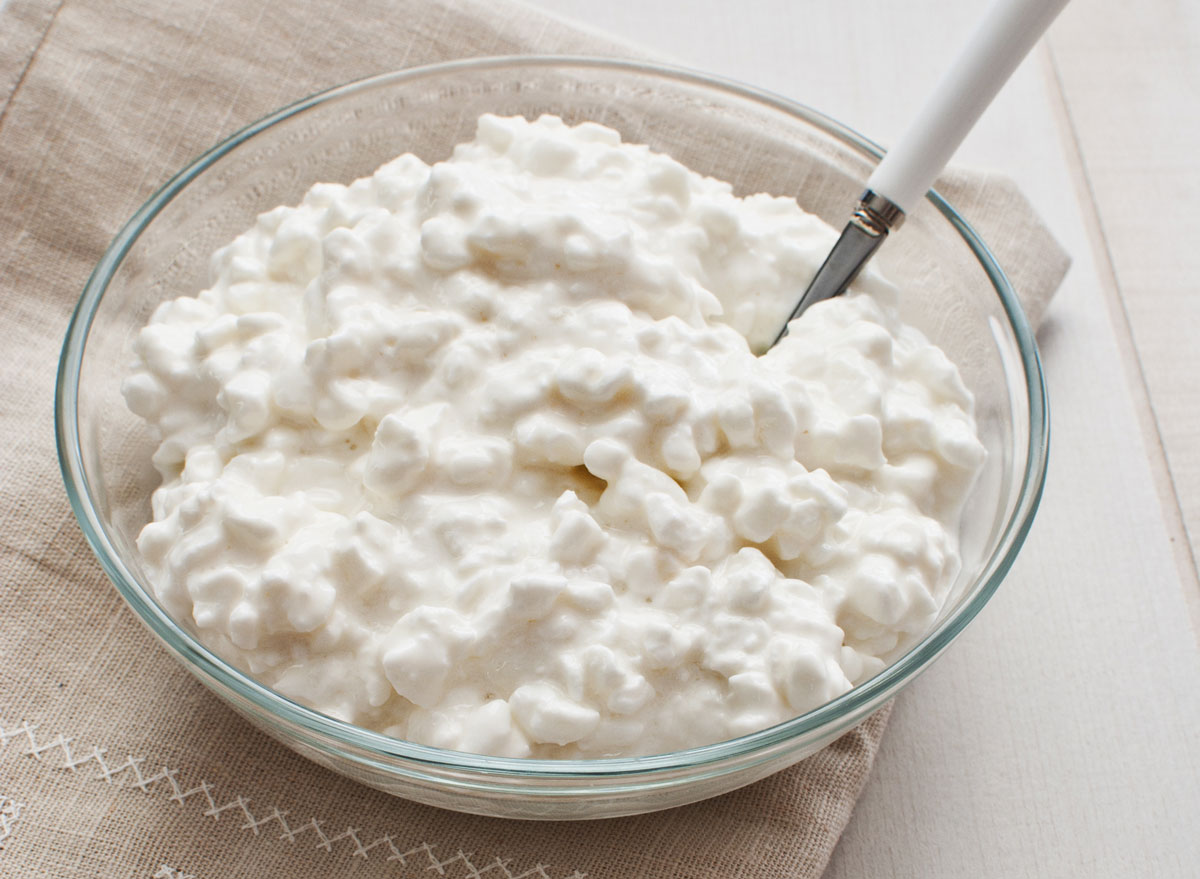
"Cottage cheese may be the food your gut health is missing. It's an underrated superfood that can deliver gut-friendly probiotic cultures in each bite. Not all cottage cheese contains healthy probiotics, but Good Culture cottage cheese is packed with live and active cultures that may help to heal the gut and gut-related issues such as IBS, IBD, or even ulcerative colitis," says Tracy Lockwood Beckerman, RD, registered dietitian, and author of The Better Period Food Solution. "The probiotics in Good Culture may also quell anxiety that can often aggravate the gut, leading to diarrhea, stomach cramps, or constipation. Because of the live and active cultures in Good Culture's products, it can help to squash inflammation and even help to heal the gut."
Whole Grains
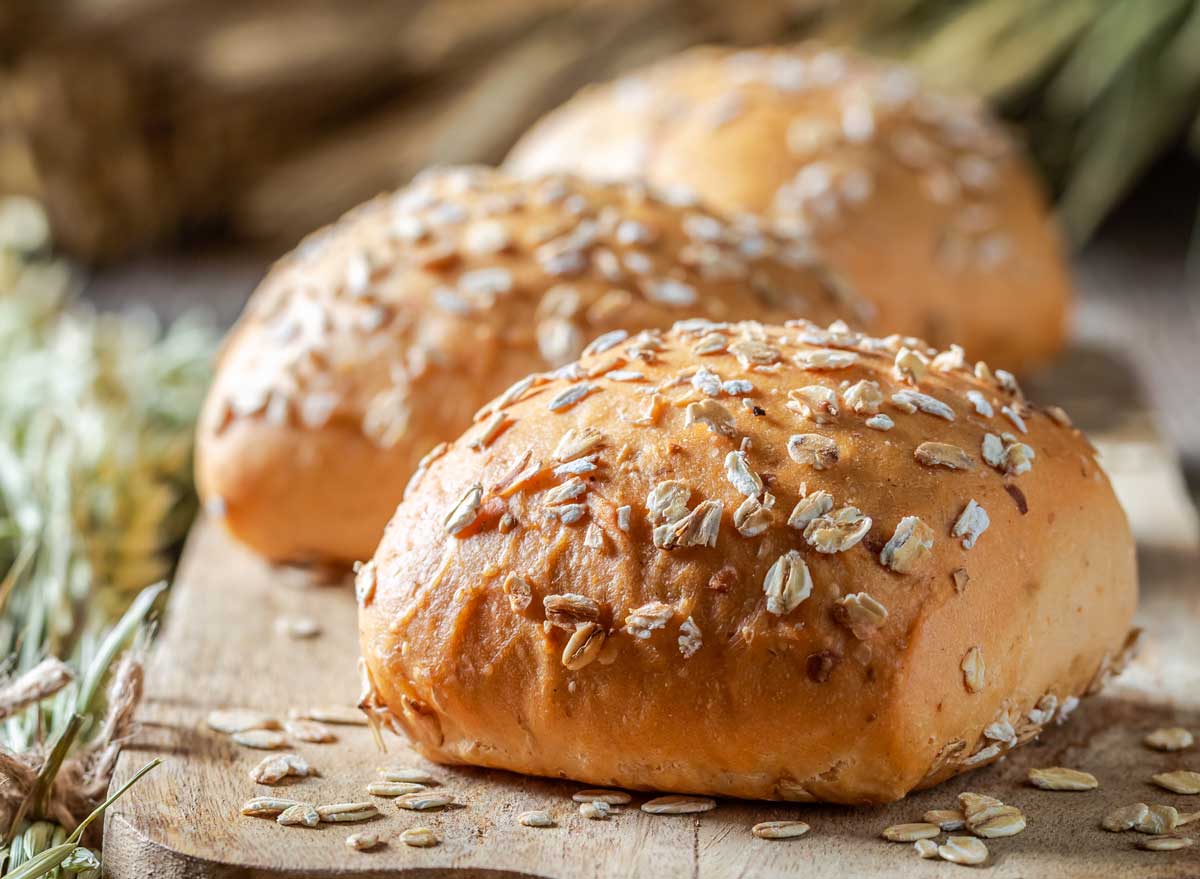
"Due to their high fiber content, whole grains can support healthy digestion by adding bulk to your stool, reducing constipation, and feeding your healthy gut bacteria," notes Henry.
Cassidy Gundersen, PhD, CHNP, CSNP, a health coach and nutritionist with a master's and PhD in health and nutrition, points out that brown rice (which is a whole grain) is especially beneficial. "One of the most soothing foods for gut problems is brown rice," she adds. "It contains insoluble fiber, which helps move bulk through the digestive system more easily. It's fiber content aids in reducing both constipation and diarrhea as well as hemorrhoids."
Prunes
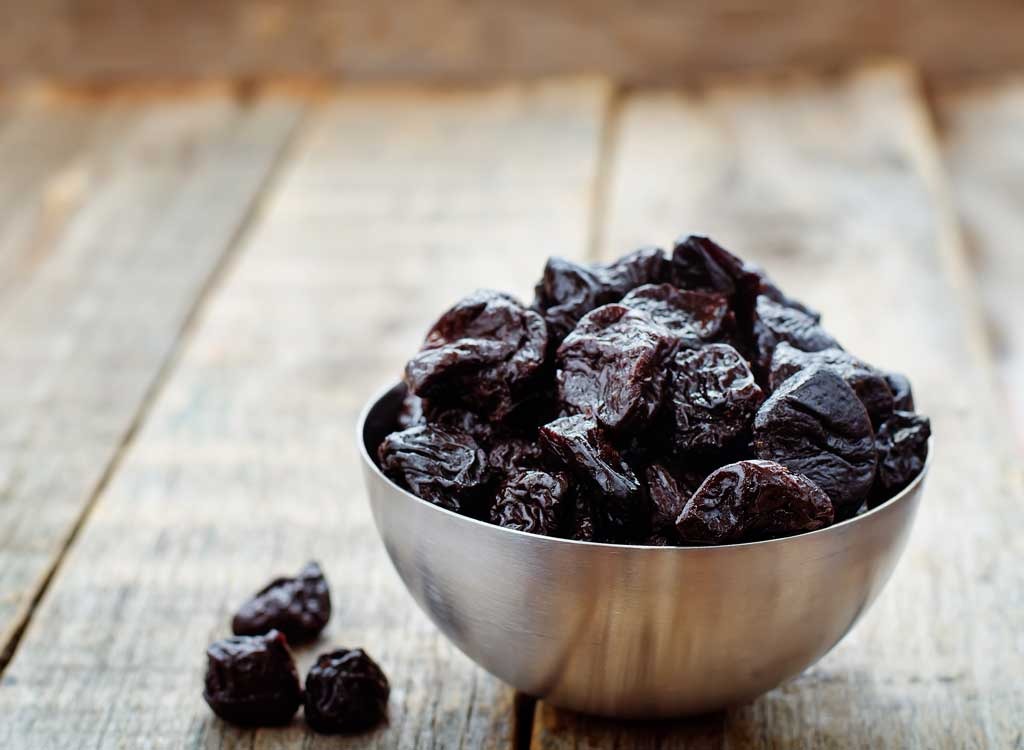
"Prunes have a unique nutrition profile that helps alleviate constipation. Its insoluble fiber, cellulose, increases the amount of water in the stool, which ultimately adds bulk," says Gregg. "The soluble fiber helps increase stool weight as it is fermented in the colon to produce short-chain fatty acids. Increased stool bulk and increased stool weight help to remedy constipation."
Onions
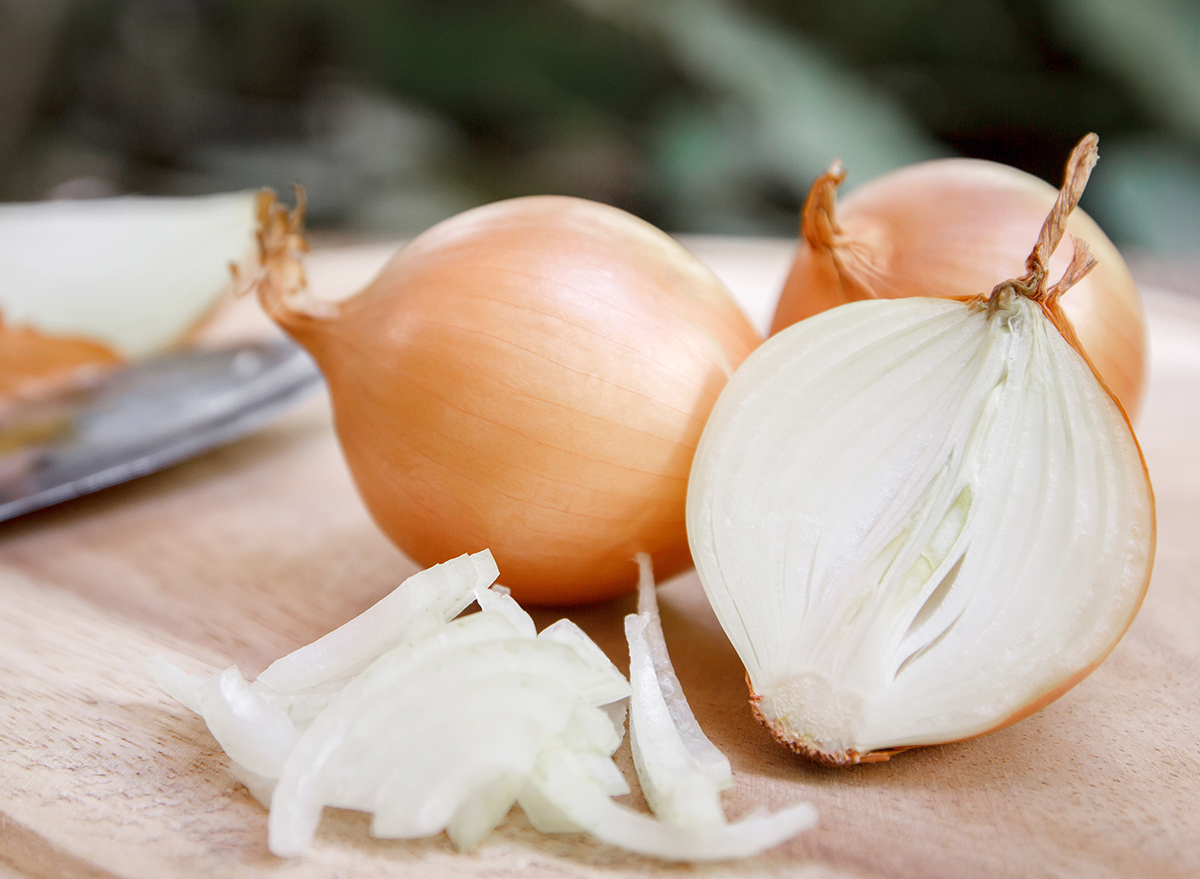
"Onions are a rich source of nondigestible fiber (prebiotics) that are fermented by friendly bacteria in the colon, creating a short-chain fatty acid POSTBiotic called butyrate," says Olesiak. "Harvard considers butyrate the best POSTBiotic for gut health, and numerous clinical research studies indicate it may reduce inflammation in the gut, a common cause of gastrointestinal distress, which may help relieve the symptoms of irritable bowel syndrome, Crohn's disease, and ulcerative colitis."
Chia Seeds

For those looking for relief from IBS symptoms, Bowerman suggests adding a tablespoon of chia seeds to your morning smoothie or oatmeal. "Chia seeds are an excellent source of soluble fiber, which is why they thicken so readily when they come in contact with liquid," she explains. "This ability to trap water can help those who have diarrhea associated with their IBS, and the fact that chia is also a good source of fiber means that it adds bulk to the stool which can help those who have constipation associated with their IBS."
Bone Broth

"Broth made from bones and cartilage-rich 'odd bits' helps promote good gut health by reducing gut inflammation and helping to heal leaky gut," Mathes notes. "Broth made with these parts, in the traditional way, provides glutamine and glycine: two amino acids that are important for detoxification and a healthy GI tract. Bone broth can be sipped like a tea or used to make your favorite soups, stews, and curries."
Pulses
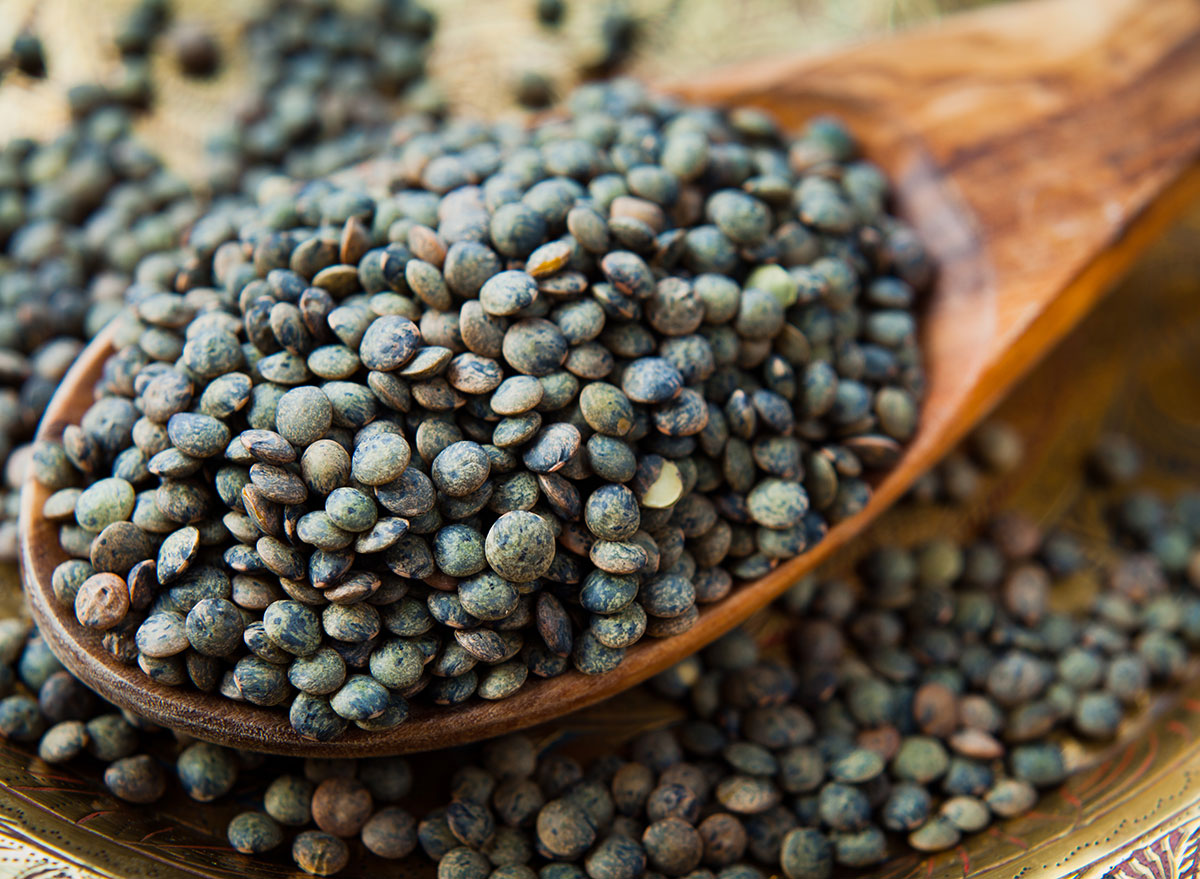
"Pulses, such as lentils, beans, and chickpeas, should be on the map for foods that help with gut issues such as constipation. That's because pulses contain fiber that contributes to stool bulk which then allows them to be more easily passed through the body," explains Beckerman. "Bob's Red Mill has a variety of non-GMO and high-quality pulses to choose from that help deliver fiber in the diet. Plus, a diet rich in fiber helps reduce the risk for other chronic diseases such as diabetes, high cholesterol or heart disease."
Peppermint

"Peppermint has been revealed to improve digestion," says Henry. "It can improve IBS symptoms and push food more rapidly through your digestive system." It can also help relieve stomach spasms and abdominal pain and is great to drink as a tea. Speaking of tea, do you know about these 12 Side Effects of Drinking Tea Every Day?

